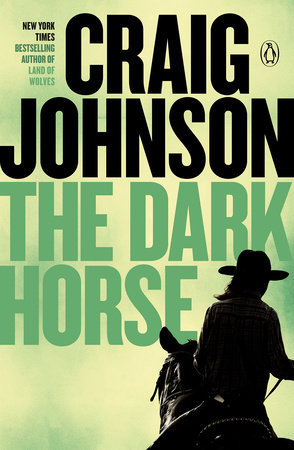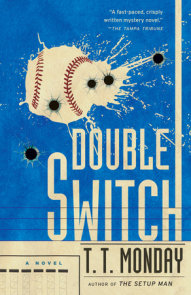READERS GUIDE
Introduction
After twenty-five years on the job, Walt Longmire, sheriff of Wyoming ‘s Absaroka County , finds himself at a crossroads. The recent past has been tumultuous for the widowed lawman. His only daughter, Cady, is trying to get on her feet again after a brush with death, and he’s become romantically entangled—albeit reluctantly—with his feisty undersheriff, Victoria “Vic” Moretti. It’s also an election year, and the town’s smooth-talking prosecutor has launched an aggressive campaign against him, making Walt unsure of whether he wants to continue on the job. Then, Walt is sent a “guest” prisoner from a neighboring county, and—convinced of her innocence—he is galvanized to pursue the one thing in which he’s always believed: justice.It’s more than Mary Barsad’s beauty and wealth that set her apart in a place where most criminal cases are generally “Bubba shot Skeeter while they were drinking beer in the cab of Skeeter’s truck and trying to figure out if Bubba’s Charter Arms revolver was loaded” (p. 201). Utterly indifferent to her own fate, the champion horsewoman has confessed to shooting her husband, Wade, in the head six times after he set fire to their barn, which contained her eight beloved horses. However, as Walt teases out threads of her story, he discovers that Mary was so doped up on insomnia medication that she can’t actually remember the murder.
So it takes little prodding for Eric Boss, an old acquaintance investigating the fire, to convince Walt to make a few undercover inquiries over in Absalom on behalf of the insurance company. But the Barsad ranch is also near the spread Walt once called home and his return is complicated by unsettling memories. And he isn’t there long before he learns that the dead man had a gift for making enemies on both sides of the law.
Born Willis Barnecke, Wade dodged a murder charge by testifying against several Atlantic City mob acquaintances before disappearing into the witness protection program. He’d already embezzled away the good name of his first new identity when he got up to his old tricks as Wade Barsad. To ensure the FBI ignored his more recent illegal activities, Wade strung them along with the promise of further information.
Walt is literally dodging bullets when both Vic and Walt’s old friend Henry Standing Bear turn up in town. And since the FBI’s trying to warn him off the case and just about everyone in Absalom—from the illegal Guatemalan beauty to the old cowpoke who adored Mary and the ranchers whose cattle Wade stole—harbored a grudge against him, Walt’s going to need all the help he can get to bring in the real killer.
In The Dark Horse , Craig Johnson deftly explores the devastating wake of one brutal man but leavens it with his western lawman’s wry, erudite humor. Fast-paced, smart, and compulsively readable out of the gate, The Dark Horse is a surefire winner and a fantastic addition to Johnson’s addictive, award-winning Walt Longmire series.
Questions and Topics for Discussion
1. Who is the novel’s dark horse?
2. Is Walt willfully trying to lose his reelection campaign? Would his life be easier if he were no longer sheriff of Absaroka County ? Why do you think he chose to become a lawman instead of a rancher?
3. If Cady marries Michael Moretti, Walt and Vic would find themselves in an even more complicated relationship. Does Walt owe it to Cady to break things off with Vic?
4. Do you agree with Walt’s prediction that the potential jurors for Mary Barsad’s trial would find her guilty because she shows no repentance?
5. In what way does Absalom’s bloody past affect the course of the novel? How would you answer Bill Nolan’s question to Walt: “If nobody remembers the history, did it still happen?” (p.131).
6. Does the Powder-River-Pound-Down-Tough-Man Contest help Walt work through his anxiety about Cady? Is physical violence simply an inextricable part of male genetics?
7. For a Wyoming lawman, Walt’s distrust of horses comes as something of a surprise. How does it affect your opinion of the good sheriff? Do you believe that animals have an intuitive sense of human intentions?
8. Walt remembers his father saying “the outside of a horse is always good for the inside of a man” (p. 296). What do you think he meant?
9. How much responsibility does Walt bear for Hershel’s death? Did his actions needlessly endanger Benjamin’s life?
10. Do you approve of the witness protection program? Is it fair that criminals—perhaps murderers themselves—can escape punishment for their crimes by testifying against more serious offenders? Is Cliff Cly’s behavior acceptable for an officer of the law?
11. Do you think Wade’s brother invited his fate? Why or why not?




















